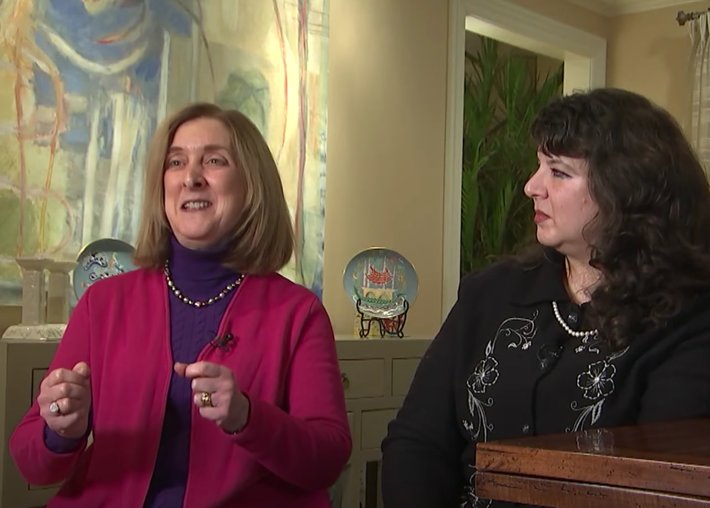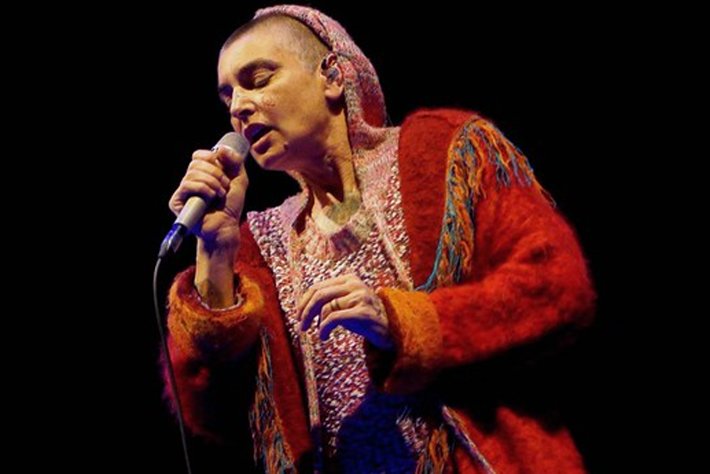For International Women’s Day March 8, dedicated to the social, economic, cultural and political achievements of women, we pay tribute to a remarkable network of Muslim and Jewish women committed to promoting peace and greater understanding between their communities.

The Sisterhood of Salaam Shalom was founded in the summer of 2010 by Sheryl Olitzky and Atia Aftab, two women who barely knew each other. “Salaam” and “Shalom” are the Arabic and Hebrew words for “peace.”
What Olitzky describes as her “aha” moment came during a 2010 trip to Auschwitz. “It had a huge impact on me and I decided I wanted to do something to get rid of the hate.”
On returning home to New Jersey, Olitzky called a local mosque and said, “I just want to take a small group of Muslim and Jewish women, bring us together and let us build relationships and influence the greater community and stop hate toward each other and protect each other.”
The mosque connected Olitzky with Aftab, a well-known Muslim activist and adjunct professor at Rutgers University, where she teaches Islamic law and jurisprudence, heads the university’s Center for Islamic Life and is a member of the Rutgers University Board of Overseers that governs the Rutgers University Foundation.
“We had a common mission,” said Aftab, who is the sisterhood’s chair emeritus. “I as a Muslim woman who is very active in my community also felt that if someone is extending a hand to me I should receive that hand and we should walk together.”
The sisterhood began with 10 members and has grown to more than 100 chapters consisting of over 2,500 women in North America.” according to Olitzky. “Women enter the sisterhood as strangers…then they become friends and then they become sisters.”
The Sisterhood of Salaam Shalom is a national network of Muslim and Jewish women committed to “living in harmony and limiting acts of anti-Muslim and anti-Jewish sentiment.”
In 2019, the Sisterhood of Salaam Shalom was among 10 grassroots organizations from around the world chosen for the Intercultural Innovation Award from the United Nations Alliance of Civilizations (UNAOC) and the BMW Group. The sisterhood was chosen from among more than 1,200 applicants from 128 countries.
The rapid escalation in anti-Semitic and Islamophobic incidents in recent years is the biggest issue that members of the sisterhood face today, according to Olitzky. “Thank God we have each other, and when one of us gets a little nervous or scared, the other one is lifting you up.”
“Our premise is that Muslim and Jewish communities share an over 1,400-year relationship and our religious communities face similar challenges as minorities in America,” Aftab wrote in a 2020 blog on the Sisterhood of Salaam Shalom website. “Sheryl and I were committed to our friendship and we knew from the beginning that if our organization was founded on conflict it would not last. Muslims and Jews should not see each other only through the lens of contemporary politics.”
In fact, for members of the sisterhood, one of the key principles of the organization is to refrain from talking about Middle East peace issues before getting to know each other.
All members are required to follow a curriculum, “and it’s only at the point where they can listen with their heart that they enter into challenging conversations,” Olitzky says. “They may not still agree—and that’s OK—but they will see the world differently.”
Thanks in part to the training that members and organization co-leaders receive, when controversial discussions do take place, they tend to go surprisingly well.
“They’re very constructive,” says Olitzky. “We teach people to see the world through your sisters’ eyes—to know what they’re feeling before they’re feeling it. When one of us is in pain, we’re in pain. When one of us is happy, we’re celebrating. And so it’s listening to their words as if they’re yours and understanding their story and respecting it.”
“Muslim friends tend to say, ‘Oh you’re meeting with Jewish people—does that mean you’re normalizing Israeli-Palestinian issues?’” says Aftab. “This is not about that. This is about faith and when you have built a relationship of peace and love and friendship with somebody, you know you can talk about things… So our idea is … let’s build one relationship at a time and, you know what, maybe that will reverberate and peace will spread.”
Being part of minority communities also helps members get along. “The idea is that we are unique in that we are trying to retain our religious identity amongst the majority,” says Aftab. “We feel like we have that common kind of challenge of being a minority within the majority.”
_______________
From its beginnings, the Church of Scientology has recognized that freedom of religion is a fundamental human right. In a world where conflicts are often traceable to intolerance of others’ religious beliefs and practices, the Church has, for more than 50 years, made the preservation of religious liberty an overriding concern.
The Church publishes this blog to help create a better understanding of the freedom of religion and belief and provide news on religious freedom and issues affecting this freedom around the world.
The Founder of the Scientology religion is L. Ron Hubbard and Mr. David Miscavige is the religion’s ecclesiastical leader.
For more information visit the Scientology website or Scientology Network.


